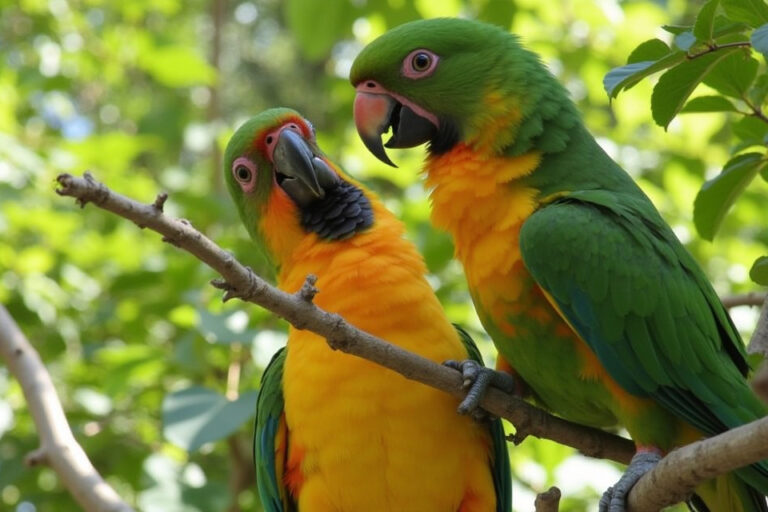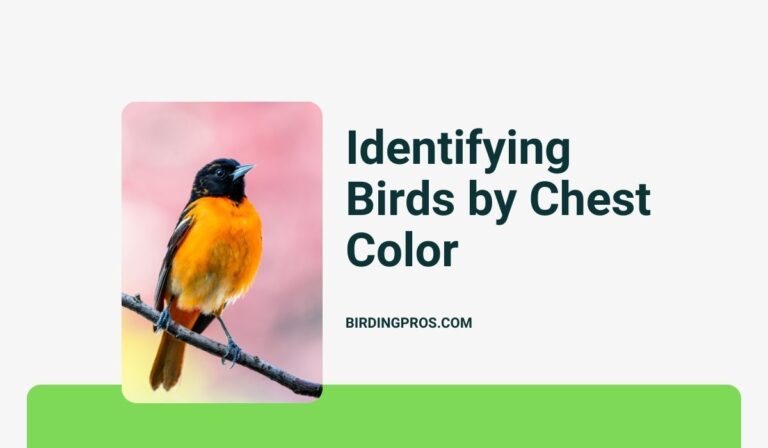How to Take Care of Pet Birds: A Comprehensive Guide
Taking care of pet birds involves several key practices to ensure their well-being. Provide a balanced diet with seeds, pellets, fruits, and vegetables. Keep their environment clean by refreshing water daily and changing bedding regularly.
Table of Contents
Why Should We Take Care of Pet Birds?
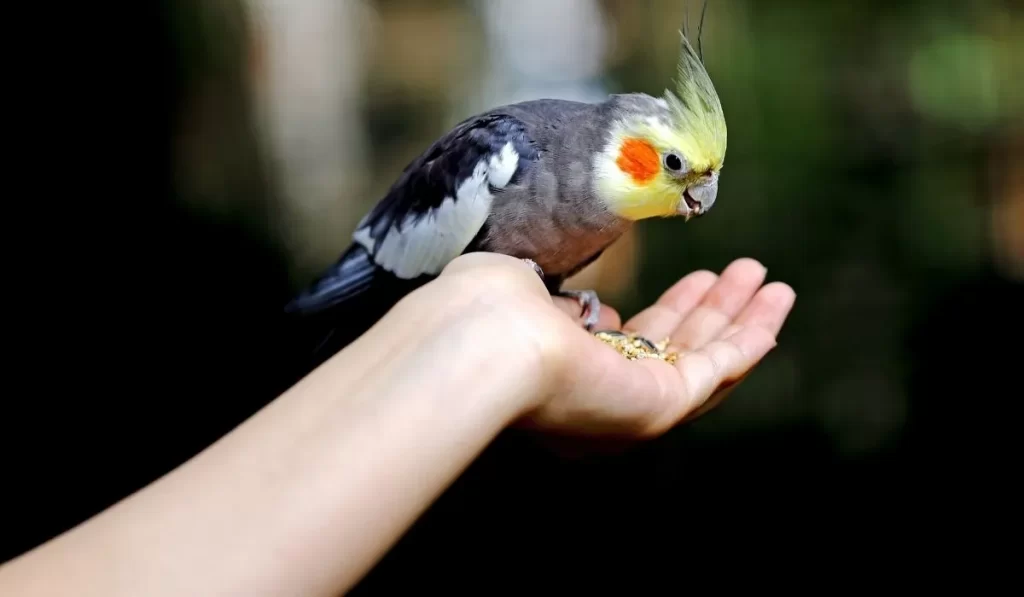
Pet birds can bring joy, color, and a sense of tranquility to any home. However, these feathered friends require specific care to thrive. Whether you are a new bird owner or an experienced avian enthusiast, understanding how to take care of your pet bird is essential for its health and happiness.
This guide provides detailed insights into how to take care of pet birds at home, covering everything from their dietary needs to their living environment.
Understand Your Pet Bird’s Needs
Before diving into the specifics, it’s important to understand the basic needs to understand how to take care of pet birds. Different species have varying requirements, but some general principles apply to all.
Diet and Nutrition
A balanced diet is crucial for your bird’s health. Here’s what you need to know:
- Varied Diet: Ensure your bird’s diet includes seeds, pellets, fresh fruits, and vegetables. Birds can become picky eaters, so introduce a variety of foods early.
- Fresh Water: Provide clean, fresh water daily. Birds can be sensitive to water quality, so ensure their water source is pure.
- Supplements: Some birds might need additional vitamins and minerals. Consult with a veterinarian to determine if supplements are necessary for your bird’s diet.
Safe and Comfortable Living Environment
Creating a safe and stimulating environment is key to how to take care of pet birds at home.
- Cage Size and Placement: Choose a spacious cage that allows your bird to spread its wings and move freely. Place the cage in a well-lit area away from drafts and direct sunlight.
- Perches and Toys: Include a variety of perches of different textures and diameters. Provide toys to keep your bird mentally stimulated and prevent boredom.
- Cleanliness: Regularly clean the cage, perches, and toys to prevent the buildup of bacteria and mold. A clean environment is vital for your bird’s health.
Read More: Most Rare Bird in North America: See The List
Health and Wellness
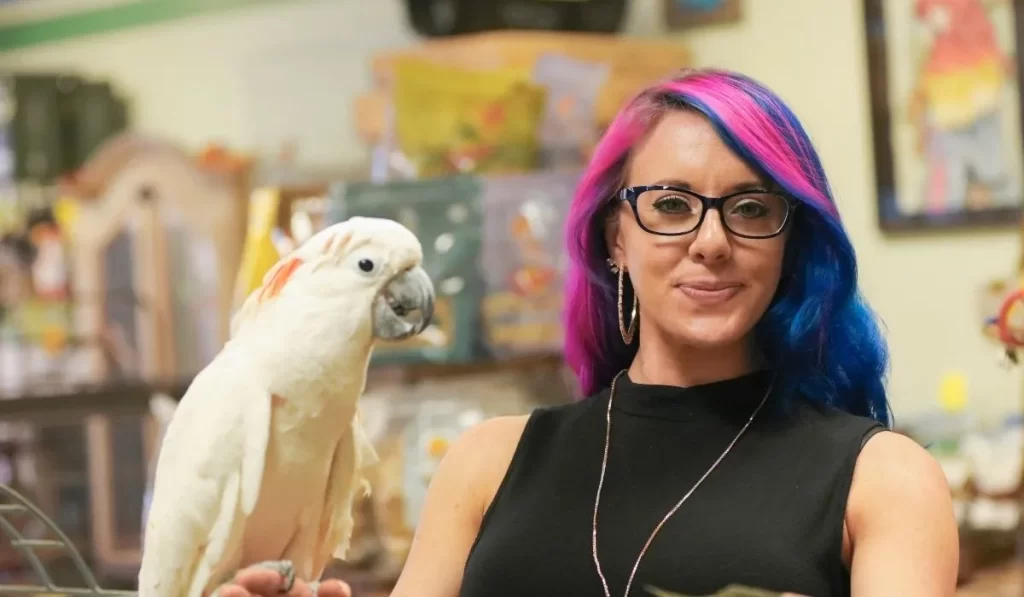
Monitoring your bird’s health is a critical aspect of how to take care of pet birds.
Regular Veterinary Check-ups
- Annual Visits: Take your bird to an avian veterinarian at least once a year for a comprehensive health check-up.
- Signs of Illness: Be aware of common signs of illness, such as changes in appetite, behavior, or droppings. Early detection can be lifesaving.
Grooming and Hygiene
- Feather Care: Birds preen themselves, but you may need to help with regular misting or bathing to keep their feathers clean.
- Nail and Beak Trimming: Overgrown nails and beaks can cause discomfort. Learn how to trim them safely or have a professional do it.
Socialization and Training
Social interaction and training are integral to how to take care of your pet bird.
Interaction and Bonding
- Daily Interaction: Spend quality time with your bird every day. This strengthens your bond and keeps your bird emotionally healthy.
- Socialization: If you have multiple birds, ensure they get along well. Introduce new birds gradually to avoid stress and aggression.
Training
- Basic Commands: Teach your bird basic commands such as “step up” and “step down.” This makes handling your bird easier and safer.
- Enrichment Activities: Engage your bird with activities that mimic natural behaviors, such as foraging. This keeps your bird mentally stimulated.
Emergency Preparedness
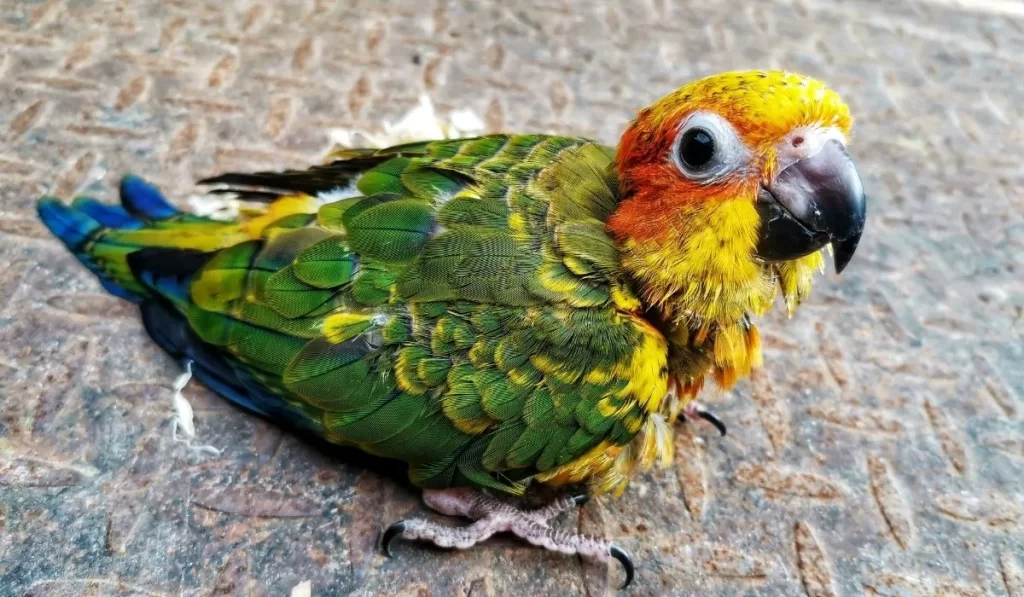
Being prepared for emergencies is a crucial part of how to take care of pet birds at home.
First Aid Kit
- Essential Supplies: Keep a first aid kit for your bird, including items like styptic powder, disinfectant, and bandages.
- Emergency Contacts: Have the contact information of an avian vet and an emergency pet clinic readily available.
Safety Measures
- Toxins and Hazards: Be aware of household toxins and remove any potential hazards from your bird’s environment.
- Escape Prevention: Ensure windows and doors are secure to prevent your bird from escaping.
FAQs for How to Take Care of Pet Birds
1. What should I feed my pet bird?
Providing a balanced diet is essential for your bird’s health. Offer a mix of seeds, pellets, fresh fruits, and vegetables. Avoid feeding your bird avocados, chocolate, caffeine, and alcohol, as these can be toxic. Consult with your veterinarian to determine if additional supplements are necessary for your bird’s specific dietary needs.
2. How often should I clean my bird’s cage?
You should clean your bird’s cage regularly to maintain a healthy environment. Clean food and water dishes daily, remove droppings and replace soiled bedding weekly, and perform a thorough cage cleaning monthly. Regular cleaning helps prevent the buildup of bacteria and mold, ensuring your bird stays healthy.
3. How can I tell if my bird is sick?
Common signs of illness in birds include changes in appetite, weight loss, lethargy, changes in droppings, and unusual behaviors like fluffing up feathers or sitting at the bottom of the cage. If you notice any of these symptoms, consult an avian veterinarian immediately. Early detection and treatment are crucial for your bird’s health.
4. How can I keep my bird mentally stimulated?
Mental stimulation is vital for a bird’s well-being. Provide a variety of toys, such as puzzles and foraging toys, to keep your bird engaged. Rotate toys regularly to maintain interest. Spend quality time interacting with your bird daily and teach it new tricks or commands to keep its mind active. Social interaction and enrichment activities help prevent boredom and behavioral issues.
Conclusion
Taking care of a pet bird requires dedication and knowledge. By understanding how to take care of your pet bird and providing a safe, stimulating environment, you can ensure your feathered friend remains healthy and happy.
Remember, the key to how to take care of pet birds at home lies in meeting their physical, emotional, and social needs. With proper care, your bird will thrive and bring joy to your home for years to come.


